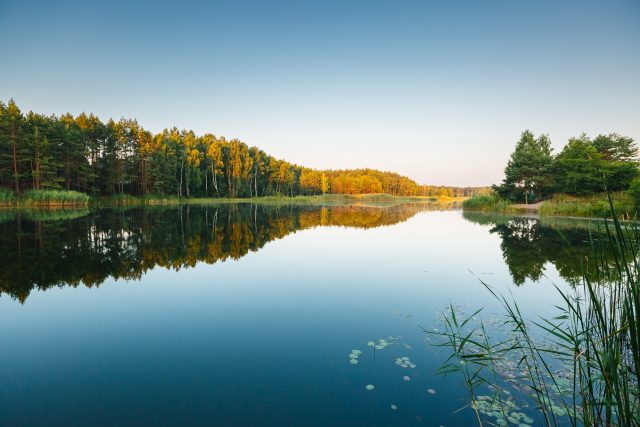
Hidden behind the every-day problems of crime, migration, and the economy, there is a potential catastrophe lurking in Europe, and it is its water supply. Less than 40 percent of the lakes, rivers, and coastal waters of the EU are in good ecological shape, while as little as 26 percent are considered not chemically polluted. The latter number has fallen by seven points since 2015, indicating a worrying decline in water quality over a short period of time. This all according to a report released by the European Commission early in February, which examined the water resources of the continent.
In a politically polarised world it is easy to forget the centrality of ecological and environment questions and how they impact our society, particularly as the debate regarding the state of nature around us tends to be slanted in favour of far-reaching climate programmes. Conservatives must not neglect to understand the importance of healthy water for the sustainability of crops to grow, and for future generations of our peoples to walk in the same lush forests and meadows as we do today.
The undue negligence of environmental topics that is unfortunately commonplace in the right wing was, as it happens, demonstrated upon the announcement of the very commissioner who presented the report on the EU’s dire water situation. Jessika Roswall is the Swedish representation in Ursula von der Leyen’s second ‘cabinet’, and her responsibility as European Commissioner for Environment, Water Resilience and a Competitive Circular Economy is a far cry from the prestige of the previous Swedish commissioner, (the infamous) Ylva Johansson as the commissioner for home affairs. In right-wing circles the relegation of the country to what is viewed as a fairly non-glamourous position was ridiculed as a defeat. Perhaps yet another shape the trivialising of environmental issues appears in.
In concrete terms, it is among other things nutrient pollution from agricultural activities that contributes to the worsening state of European water resources, the report finds. It also points out the deteriorating health of marine ecosystems. We are familiar with controversial EU measures in these areas, as they have been criticised for targeting farmers and fisheries. The consequences of what is seen as antagonisation of these sectors from the EU elite is what is bringing farmers out to protest in several European countries.
This puts the conservative and Eurosceptic movements in a tough situation, being forced between addressing serious pollution and overfishing issues, and standing up for their farmers and fishers. Conservatives may need to sharpen their policy formulations on these topics, to avoid jeopardising the future of Europe’s water supplies – but making sure not to lose their traditional support in the agricultural sector. EU centralists and climate activists may otherwise establish a monopoly on tackling these problems, which will only lead to further unproportional penalisation of farming and fishing. This is something to bear in mind as the EU is formulating a “Water Resilience Strategy”, which will claim to remedy the problems.
Another topic that has yet to receive wide coverage, despite its serious implications for the health and longevity of European society, is the prevalence of PFAS pollutants and other “forever chemicals” in the water. PFAS are synthetic compounds used to make products, most notably fabrics, resistant to heat, water, and staining. They are released into nature with the breakdown of such products and improper disposal. This too has been the subject of action plans from the new European Commission, which early on formulated its ambition to address PFAS pollution, which affects the long-term health and fertility of humans, animals, and plants alike.
In France, just about every person is vulnerable to excessive PFAS intake through the drinking water, two recent studies found, according to Le Monde. In Paris, some areas have a staggeringly high level of PFAS contamination of up to 60 times the recommended limits. Scandals have also occurred in Sweden where entire small towns have been found to have dangerously high PFAS content in their local water supply.
On this issue conservatives have an easier time to take the lead, compared to the issue of agriculturally derived pollution. The calls to ban PFAS compounds in the EU are already growing, and the only risk associated with supporting them is crossing industry interests that may very well be poisoning Europe for all future.



 Subscribe
Subscribe